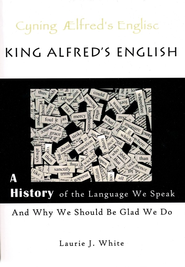Do you ever wonder why some ads and political campaigns are so powerful? There’s a reason for that: They use certain strategies to move their viewers.
It’s important to learn these strategies so you can see when they are being used on you!
In this tutorial, you’ll learn three powerful tactics, read examples, and then write your own ad for a product or a politician.
This tutorial is geared for students in 7th – 12th grade.
Ready? Let’s do this . . .
1. Create a sense of fear
What are people afraid of? Here’s a list of fears that, say, an insurance company tries to connect with or create: fear of losing one’s home, fear of not having enough money to buy another car after an accident, fear of what happens to your family after your death, and so on.
And these are some fears politicians target: fear of more taxes, fear of losing one’s job, fear of the other political party taking control of a hot topic like abortion, fear of losing social security or other benefits, fear of not being on the winning side, fear of high college tuition costs, and so on.
A sense of fear can be created by using loaded words. A loaded word or phrase is one that has a strong emotion tied to it. Read these words from a Natural Resources Defense Council envelope, which tries to create anger, frustration, or panic in the reader. You are reading to identify loaded words, not to see if you agree with the topic. The loaded words are underlined:
[They are] taking deadly aim at the world-famous wildlife of Yellowstone National Park. Two of the park’s greatest living symbols will soon be stripped of protection. Another is already being sent off to slaughter!
You’ll notice that, as with advertising, this type of writing uses many adjectives, and, whew, are those adjectives loaded! It’s easy to see how loaded words can have the power to incite people to action—or simply make them angry. Here is the same paragraph written with neutral words:
[They are] changing wildlife policies at Yellowstone National Park. Two of the park’s species may now be hunted due to overcrowding. Another is currently being harvested.
No one is likely to get their knickers in a twist with that blandly worded paragraph.
Another example of loaded words comes from President Snow in the movie Mockingjay, Part 1. He and his assistant are trying to decide what to call the people who are uniting against him. “Don’t call them rebels,” he says. That will imply that there is something to legitimately rebel against. Next they think about the word criminals but discard that as well. They settle on radicals because that has the connotation of being outside the realm of normality or common sense.
Do you see how people can feel differently about all three of these synonyms?
Persuasion strategies such as loaded words and images can contribute to a sense of fear, which will prompt viewers to act.
.
2. Do it for the children
Advertisers use children to sell cars, fruit juice, medicine, and all sorts of products. I don’t mean that the children stand there and sell the product. I mean that images of children using certain products will sell the item better. For instance, some ads for car companies feature children in the back seat enjoying the built-in WIFI. They are not bored. They are not arguing. They are happy. And they see their parents in a positive light. That’s what I mean by using children in ads.
The same can be done in political ads. Politicians demand that we need a certain legislation on health, schools, taxes, immigration, air quality, or a whole host of other issues because it will benefit children. If you say you are against a certain piece of legislation or politician, you can be viewed as being “against children.”
G. K. Chesterton speaks to this predilection to use children for political gain:
“There has arisen in this connection a foolish and wicked cry typical of the confusion. I mean the cry, “Save the children.” It is, of course, part of that modern morbidity that insists on treating the State (which is the home of man) as a sort of desperate expedient in time of panic.” *
In other words, if politicians can create panic on behalf of the welfare of children, they can “fix” it with more legislation.
.
3. Skew the facts or the perception
Colonel Harland Sanders, founder of Kentucky Fried Chicken, is a respected colonel.
No, he is not. He’s a faker. Sure, he was in the army but never as a colonel. He’s just calling himself that to gain a respect he does not deserve.
Which statement is correct?
Here’s the truth: Harland Sanders was given the title of colonel in 1950 by the governor of Kentucky. To be a Kentucky Colonel is a high honor awarded to those who have served their community; it acknowledges their achievements.
A man who lives in a rural area can be characterized as a hard-working provider or an uneducated redneck. An SUV can be described as a gas-guzzling, CO2-belching destroyer of the atmosphere or a handy vehicle for families and difficult terrain.
Do you see how facts can be skewed?
When viewing ads or political campaigns, be observant. Is information being skewed? Are perceptions being manipulated? Are the ads demeaning people, or are they addressing the issues?
Now it’s your turn: Write a TV ad for a product of your choice or write a political ad. Use one or more of the persuasion strategies mentioned in this prompt.
Explore the power stories have to sway people here. >>
Learn about 5 powerful persuasion strategies based on a real speech here. >>
And 3 more here. >>
Interested in a tutorial on connotations? Click here. >>
*****
Looking for fun middle school writing prompts? Look no further!
Engage your teen writer with these intriguing high school prompts.
*****
* Education: Or the Mistake about the Child by G. K. Chesterton












